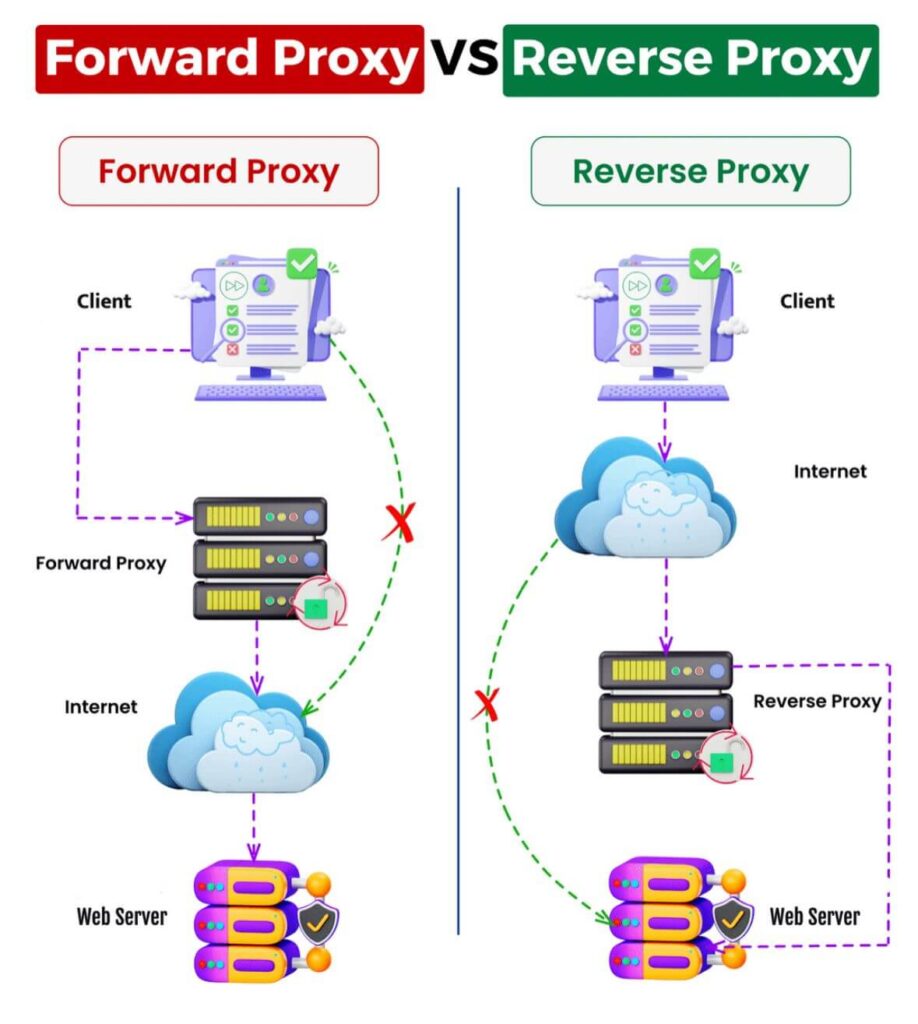In an era in which digital footprints are progressively scrutinized, the importance of internet privacy has never been more significant. As users become more aware of the risks associated with online activities, innovative solutions like proxy servers are gaining traction. Proxy servers act as intermediaries between users and the websites they access, providing an additional layer of privacy and security. Understanding how these servers function and what they can offer is crucial for anyone who wants to safeguard their online presence.
In the realm of internet privacy is continuously evolving, and proxy servers play a pivotal role in this transformation. While many users might confuse proxy servers with VPNs, they serve different purposes and come with their own set of benefits and limitations. This article will explore the intricate world of proxy servers, examining their functionalities, benefits for online privacy, and how they can improve security and anonymity. From helping users bypass geographic restrictions to their applications in market intelligence and data scraping, the relevance of proxy servers in the current digital environment cannot be overstated.
Comprehending Proxy Servers
Proxy services function as middlemen between a client's device and the internet. When you attach to a proxy, your requests to online services are initially directed to the proxy. The service then forwards these requests on your account, afterward getting the replies and sending them back to you. This process allows users to maintain a level of secrecy, as the sites you access will only see the IP address of the proxy server instead of your true IP address.
There are different types of proxies, each having specific purposes. HTTP proxies are ideal for web traffic, while SOCKS proxies can manage any kind of online traffic—whether it's for exploring or playing games. Transparent proxies do not alter requests or responses but are often utilized for observation purposes, and various specialized types of proxy servers focus on unique tasks such as caching or securing connections. Grasping these variations is important for selecting the appropriate proxy server that matches your needs.
Proxies not only improve individual anonymity but also provide a variety of benefits such as better security and entry to region-locked material. By hiding your IP address, proxy servers can defend your personal information in the web and are often used to overcome restrictions or restrictions imposed by certain providers. As more people and companies recognize the value of defending their online presence, the adoption of proxies keeps to progress, culminating in more sophisticated and multifaceted options in the sphere of internet privacy.
Advantages and Disadvantages of Utilizing Proxy Servers
Using proxy servers offers numerous benefits for online privacy and security. One of the primary advantages is the ability to conceal your IP address, which enhances secrecy while browsing the internet. By directing your requests through a proxy, users can prevent websites and online services from monitoring their real location and identity. This is particularly crucial for individuals concerned about monitoring and data collection by various companies. Additionally, proxies can help users bypass geo-restrictions, allowing access to content that may be restricted in certain regions.
However, there are also risks involved in using proxy servers, especially free ones. Many free proxies may compromise user security, as they can log browsing activities or inject ads, leaving users vulnerable to data breaches. Moreover, the lack of encryption on some proxy servers means that critical information can be intercepted by harmful third parties. Users must be cautious when choosing a proxy and favor those that offer strong security features and a comprehensive privacy policy.
In a business context, proxy servers can enhance productivity by enabling employees to access various resources while maintaining network security. Businesses often use proxies for competitive intelligence and data scraping, which can produce valuable insights. Nevertheless, abuse of proxy servers can lead to ethical dilemmas, such as contravening terms of service or legal boundaries. Organizations must navigate these risks carefully to ensure that the benefits of using proxies do not come at the cost of morality or legal compliance.

Proxies Servers in Online Security and Content Streaming
In the domain of online security, proxies play a pivotal role in defending private data and maintaining online anonymity. By directing traffic through an intermediary server, proxies help mask a user's IP address, making it more difficult for hackers to attack individuals. This additional layer of security is particularly helpful for companies that handle private information, as it minimizes the risk of data leaks and unsafe access. Moreover, proxies can be set up to restrict malicious sites and monitor online activity, providing further protection against possible threats.
For streaming enthusiasts, proxies offer a valuable solution for bypassing location-based content. Many content platforms implement regional restrictions on their libraries, narrowing what users can watch based on their location. By utilizing proxy servers, individuals can evade these limitations, enabling them to discover a greater variety of streaming options. https://hildebrandt-byskov-2.mdwrite.net/intermediary-servers-and-internet-monitoring-the-struggle-for-privacy is especially appealing for those looking to experience well-known shows and movies that may not be available in their location, thus boosting their general viewing enjoyment.
However, not all proxies are identical, and users must be careful of no-cost options that might jeopardize their safety. Many no-cost proxy servers lack adequate encryption or may even gather user data, overriding the very reason of using a proxy for security. When selecting a proxy for both cyber security and content streaming, it is essential to select trustworthy providers that offer solid safeguards and trustworthy service. This ensures not only a secure online environment but also continuous access to wanted content throughout various content services.
